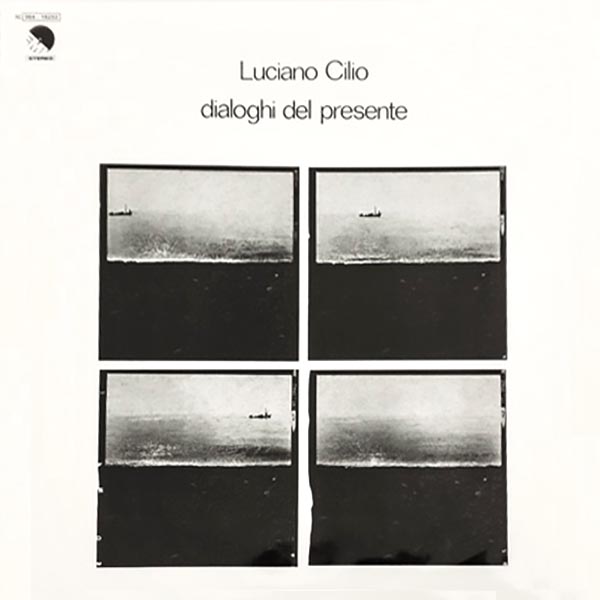Born in Naples in 1950, Luciano Cilio was an Italian avant garde composer. He only released one album before his suicide in 1983, 1977's Dialoghi del presente, which was reissued with extras as Dell'Universo Assente.
A wonderful insight from dusted magazine:
"In a macro sense, it’s been a big year for Jim O’Rourke - what with the picking ‘n knob-twiddling on the anticipated follow-ups from Wilco and Sonic Youth - but on a smaller scale, it has been a success, too. There was the archival issue of his early work, Two Organs, but deeper underground, his seal of approval tastemaking has shed some much needed light on crucial artists. One recipient was singer-songwriter Judee Sill, as her two stunning early-'70s albums finally appeared on CD in the States (O'Rourke's touching up her unreleased third album some 25 years after her death). His kind words about the enormous and excellent '70s Swedish free-jazz collective Arkimedes Badkar no doubt helped their exposure. His crowning achievement this year, though, rests on the rediscovery of Italian composer Luciano Cilio and his 1977 composition, Dell’Universo Assente(translated: “The Absent Universe”), released by the knowing Italian label, Die Schachtel.
O'Rourke's introduction describes Cilio’s music as kin to the rarefied air of the first This Heat record, as well as Bill Fay and Nick Drake’s last albums from the edge. Those expecting prime mope/car-cruising songs will be frustrated, though; there's little semblance to that sort of song craft here. Instead, its parallels to the aforementioned albums come from that painful, isolated, deeply human sensation that they all deal with, where the artist is most withdrawn from the outside world, in near-silent communion with the Creator. O’Rourke describes it as “this enormous weight that is bearing on its creators.” For a hapless writer like myself, there are barely words to contain it.
“Dialoghi dal presente,” the first of five movements, opens like an orchid, gorgeous yet with an air of flesh surrounding it. Wordless female vocals move and reverberate with the cello and guitar, reminiscent of recent Charalambides, but even as the haunting voices blend into the cello and saxophone squawk, they soon fall away into a rapturous duet between guitar and piano, with the cello returning to swell the profound sound.
For the second section, Cilio inhabits a space close to the melancholy of This Heat’s “Not Waving,” or else the high and lonesome sound of bamboo flute player, Watazumido-Shuso. “Terzo quadro” is a stark piano piece, laconic in its gentle, devastating sound. Even when writing for percussion, Cilio’s touch is certain yet open-ended. It fits somewhere between Cage’s lovely percussion pieces of the 1940s and the evocations of gifted contemporaries like Tim Barnes or Glenn Kotche.
A gifted musician, Cilio plays guitar, piano, flute, bass and mandolin here, laying out graphic notation to help the other players achieve his concept of sound. Described in the silver-on-white liner notes as an attempt to “return to sound, (to) hold it,” Cilio realizes it to be an end in itself, not just a rhythmic or harmonic component. It’s not unlike fellow visionary Italian composer Giacinto Scelsi, nor is his means of notation and indeterminacy far from American godfather Morton Feldman. This is no austere minimalist composition though; consider it an exquisite, gossamer veil rippling over the void, gorgeous even as it reveals the chilling blackness beneath."




No comments:
Post a Comment